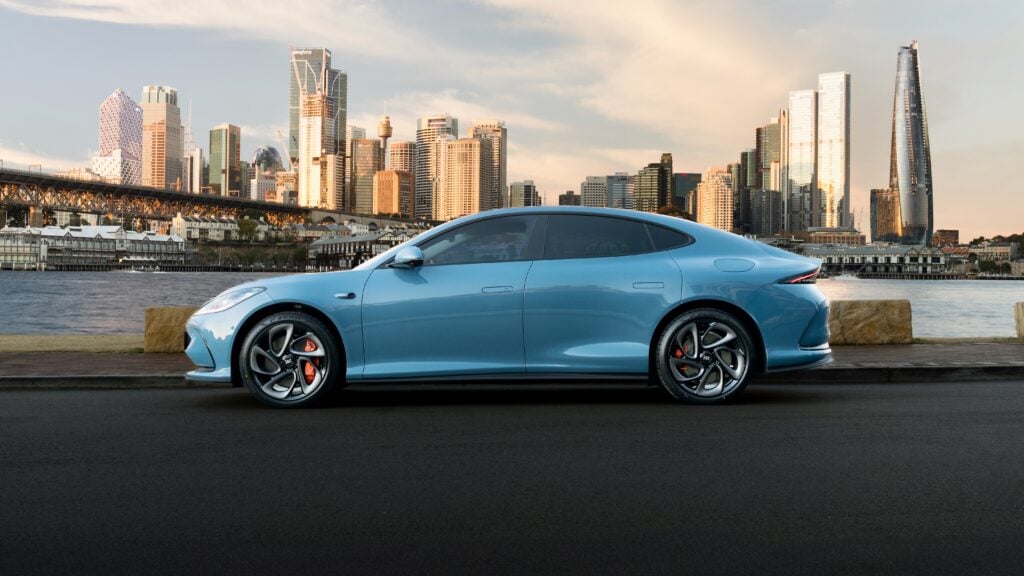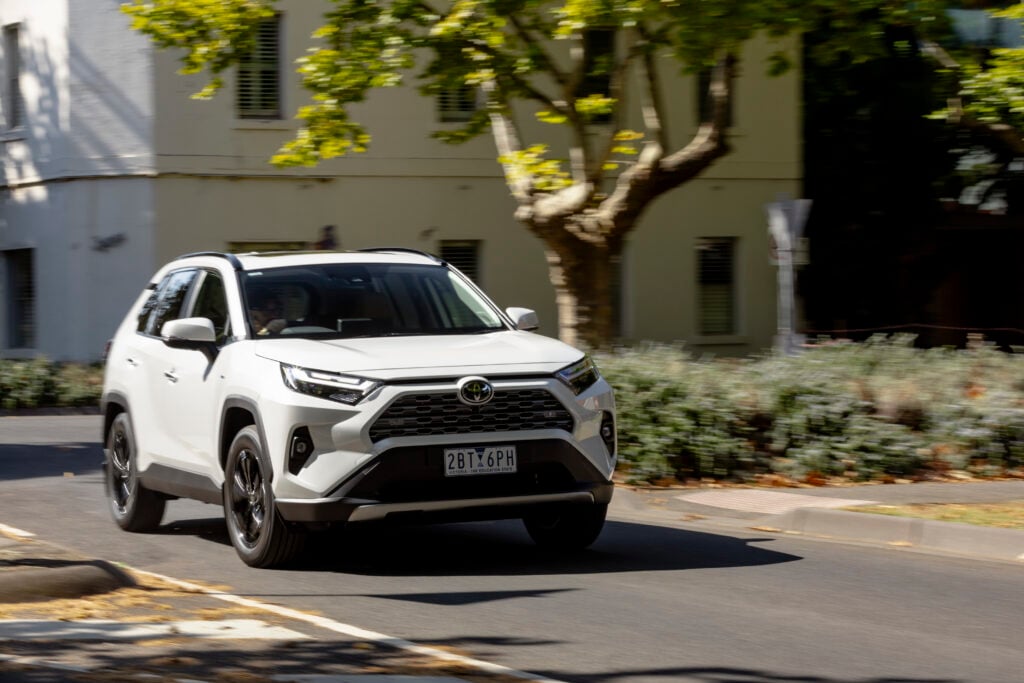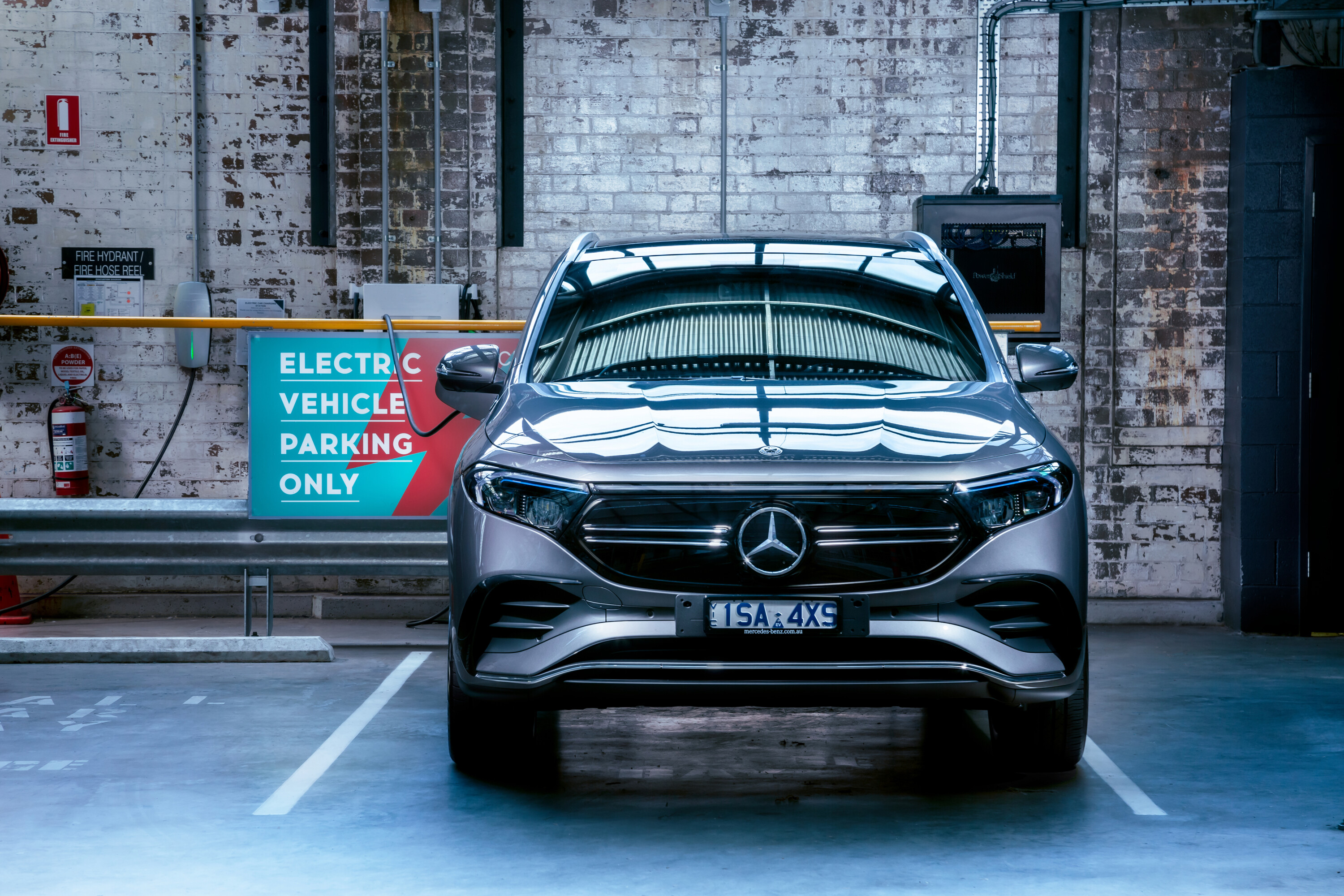
How cheap is EV charging?
Snapshot
- Charging an EV is generally cheaper than fuelling a petrol or diesel vehicle
- Home charging is most ideal u2013 cheapest, most convenient, reliable
- Some public stations are expensive and can cost the same as fuel
Cheaper charging costs compared to fuel is the key reason to make the electric switch, but how much does it cost exactly?
Despite rising electricity and fuel prices, recharging electrons in kilowatt-hours (kWh) is often cheaper than refuelling a petrol or diesel car in litres (L). Therefore, this helps recoup and surpass the extra purchase price premium (if applicable).
The more you drive and charge, the more money you save in the long run.
However, the cost to charge an electric vehicle varies, depending on the source of electricity – just as fuelling a car at different locations and with different brands might save you money. What are the latest EV charging cost rates and what should owners expect to pay with each recharge?
JUMP AHEAD
- ? How much should you expect to pay?
- ⏱️ Does it take too long to charge an EV?
- ? Time to make the electric switch?
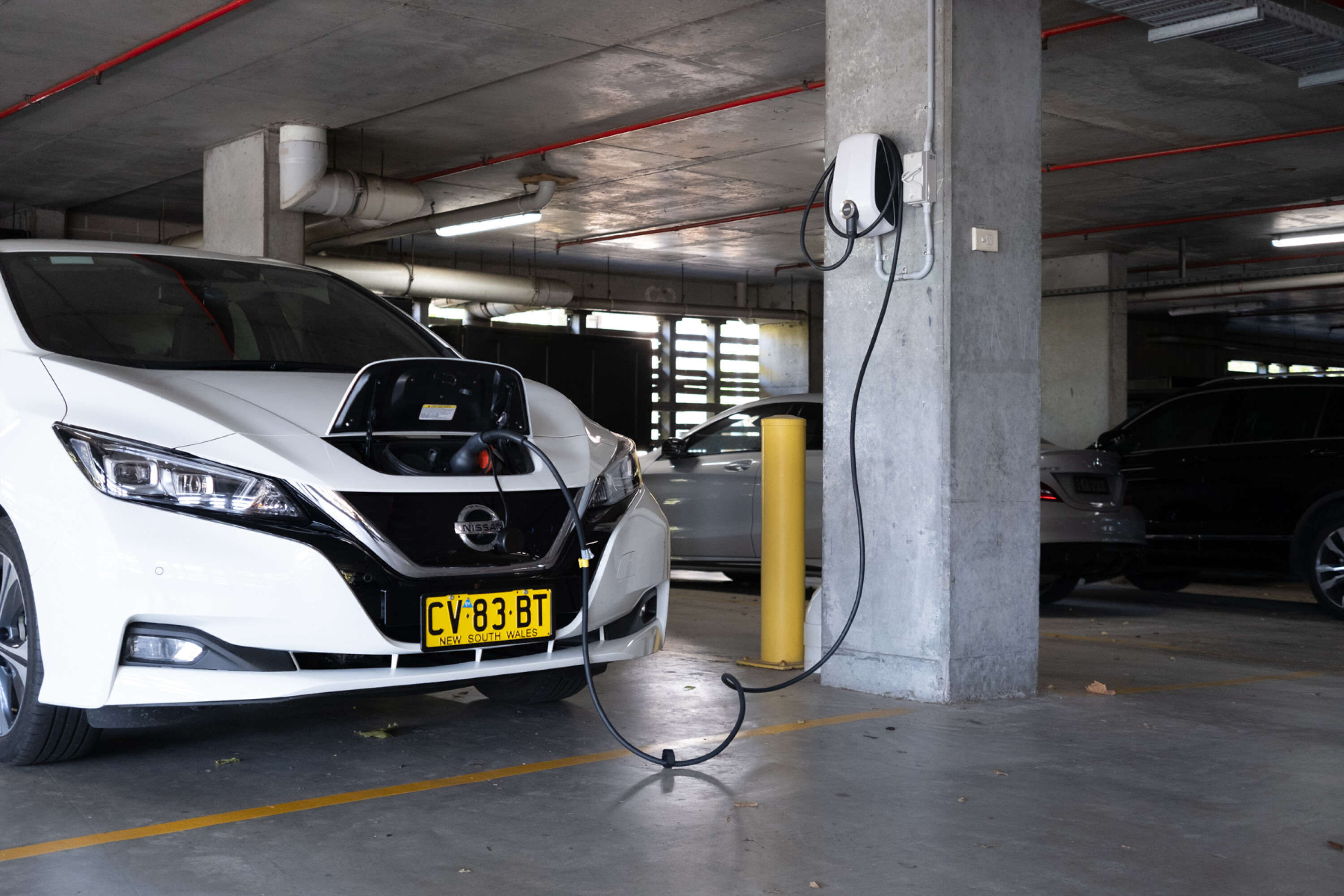
? Home charging: The cheapest method
The most affordable, reliable and convenient way to recharge an electric car is at home.
| Home electricity plan | Cost rate range (as at October 2023) |
|---|---|
| Time-of-use (off-peak tariff) | ~$0.15 to $0.30 per kWh (estimated) |
| Time-of-use (shoulder tariff) | ~$0.20 to $0.30 per kWh (estimated) |
| Time-of-use (peak tariff) | ~$0.30 to $0.50 per kWh (estimated) |
| Demand rate (smart meter required) | ~$0.20 to $0.30 per kWh + demand charge (estimated) |
| Single rate | ~$0.20 to $0.40 per kWh (estimated) |
| Note: Electricity rates can significantly differ depending on the plan, provider, and location. Check your electricity bill for the latest rates. | |
Typically recharging overnight during the cheapest off-peak electricity tariff is cheapest – usually between 10pm to 7am – but energy costs can differ significantly depending on the location, provider and plan.
According to the Australian Government’s Energy Made Easy [↗] comparison site, typical off-peak pricing for time-of-use plans can be up to 50 per cent cheaper than if you charge during peak times in the afternoon and evening.
Owners can set a scheduled AC charging timer on most EV models or ‘smart’ trickle charging cables and wall boxes, so all you need to do is plug in when you get home.
? What about dedicated EV charging plans?
Some electricity providers also offer dedicated EV charging plans with ultra-low cost tariffs ($0.05 to $0.15 per kWh), free energy periods, or bill credits.
However, be sure to look at the fineprint as general home usage rates could be overall higher-than-usual depending on the provider.
Importantly, if you have a solar panel system, then plug in anytime when the sun’s out for essentially free charging to further cut running costs and limit holistic lifetime emissions.
Select AC wall box charger models can even take the guesswork out by automatically charging when there’s solar generation.
Meanwhile, buildings with battery storage systems installed can charge EVs for free during night-time – if there’s excess energy – and bidirectional vehicle-to-home (V2H) and vehicle-to-grid (V2G) technology is also emerging.
Therefore, if you can plug in at home, public charging is rarely needed – unless you’re on a long road trip.
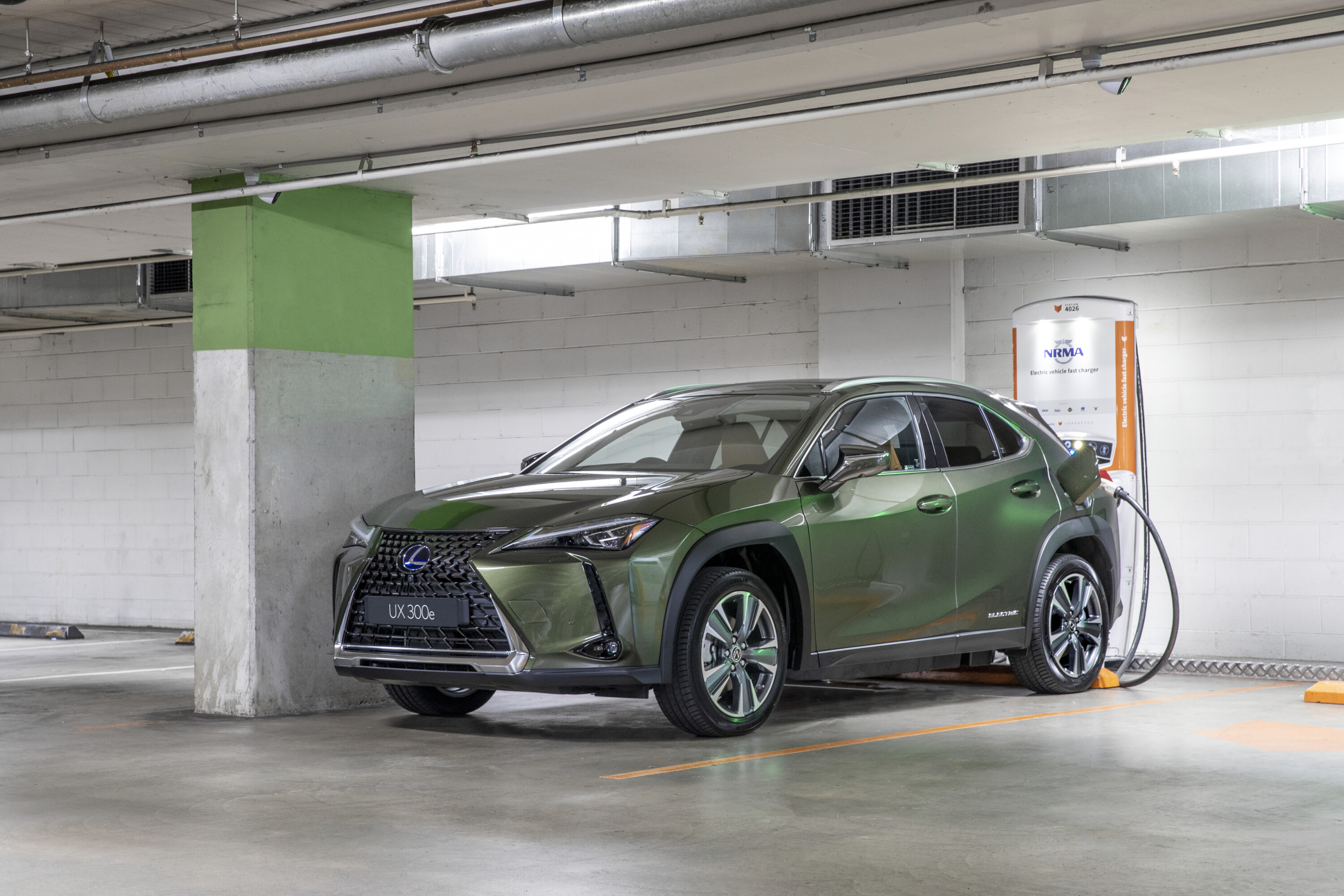
⚡️ Public charging: The when needed method
While EVs provide enough range for most daily commutes, public charging providers are the go-to if you need to top-up on the move, but it often comes at a cost.
| Charging network and station type | Cost rate (as at October 2023) |
|---|---|
| Chargefox-owned 50kW DC | $0.45 per kWh |
| Chargefox-owned 350kW DC | $0.60 per kWh |
| Evie Networks 50kW DC | $0.50 per kWh |
| Evie Networks 350kW DC | $0.65 per kWh |
| BP Pulse 75kW DC | $0.55 per kWh (variable at some locations) |
| Ampol AmpCharge 150kW DC | $0.69 per kWh |
| NRMA 50-150kW DC | $0.54 per kWh (all locations by end of October) |
| NRMA 175kW+ DC | $0.59 per kWh (all locations by end of October) |
| Tesla Superchargers 150kW/250kW DC (Tesla vehicles only) | ~$0.40 to $0.85 per kWh (variable at some locations)* |
| Tesla Supercharger 150kW/250kW DC (non-Tesla vehicles) | ~$0.75 to $0.85 per kWh** |
| *Price depends on location. Selected sites change pricing depending on the time of day and demand. | |
| **Price depends on location. Non-membership pricing shown. Only select locations are open to all EV models. | |
For the most accurate pricing rates, check the charging network’s smartphone app or alternatively PlugShare [↗].
Charge point operators mainly charge by the kilowatt-hour (kWh) of energy delivered – including charging losses – but some may be based on per minute or hourly fees.
Some networks also adopt variable pricing at select locations – which changes the charging cost rate depending on the time of day – and select stations have ‘idling fees’ to encourage good etiquette.
For example, all Tesla Superchargers impose a $0.50 per minute charge when the location is at least half full or $1.00 per minute when fully occupied. The overstay fee starts if the vehicle is plugged-in – but finished charging – after five minutes.
❓ What about other chargers?
Some state government- or council-backed EV chargers can be even cheaper, and there are charging stations offered by some energy companies (eg: Yurika, Synergy, Horizon Power, etc.), motoring clubs (eg: NRMA, RAA, etc.), and local businesses.
Most operate under the Chargefox or Exploren network, but aren’t owned by them and therefore free to set their own fees.
For state motoring club members, select Chargefox-owned fast charging sessions are eligible for a 20 per cent discount, and NRMA members receive a 10 per cent discount on the motoring club’s network.
Some organisations may even offer free charging, with some exceptions, potentially time limits, and other etiquette rules. Also, higher-end EV models from brands, such as Audi, Lexus and Genesis, come with free Chargefox fast charging for use within a certain time period.
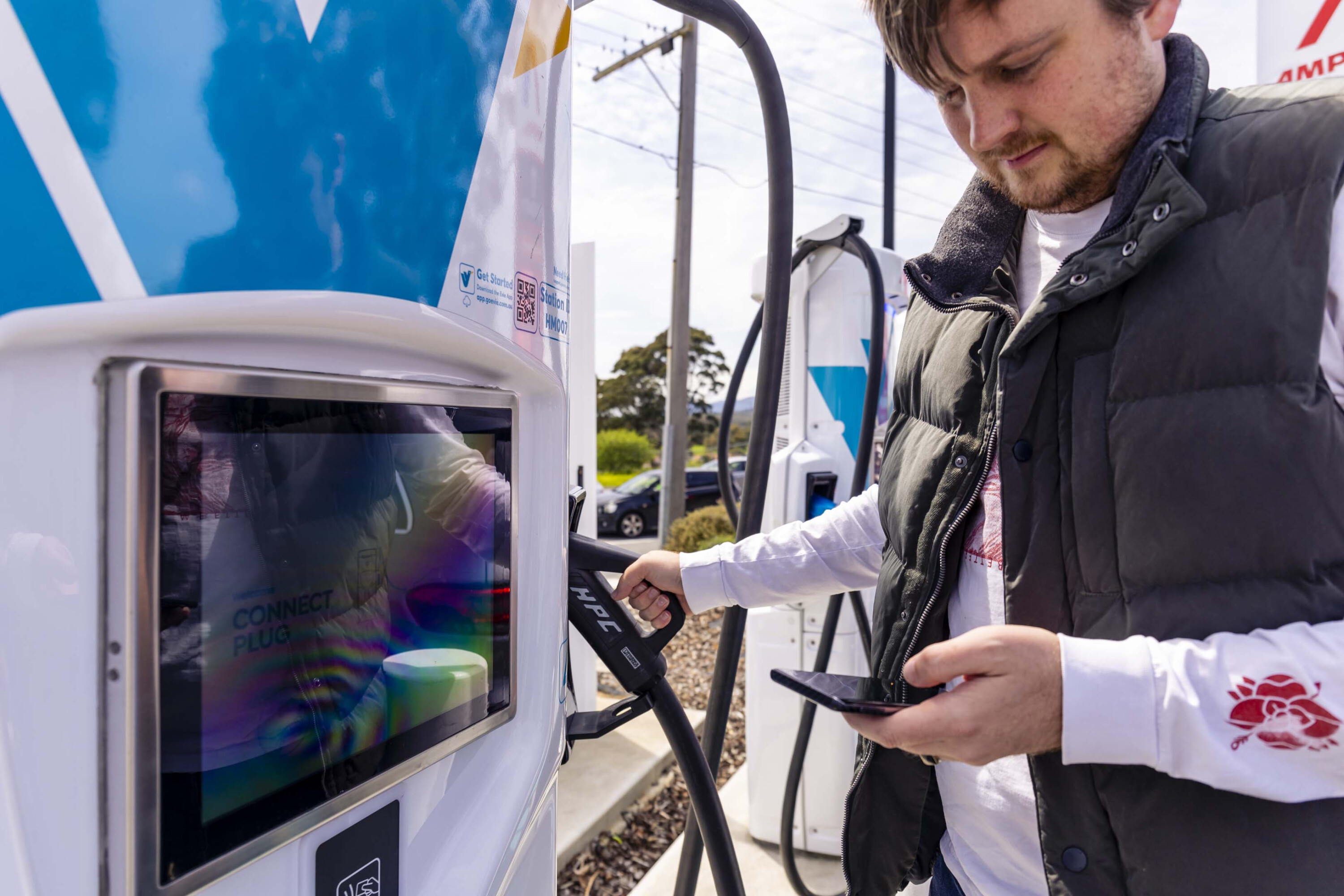
? How much should you expect to pay?
All charging costs below assume recharging from 10 to 80 per cent (70 per cent charge), without accounting for charging losses.
| MG 4 Excite 51 (35.56 / 50.8kWh) | Tesla Model Y RWD (40.25 / 57.5kWh) | Kia EV6 (51.8 / 74kWh) | |
|---|---|---|---|
| Home ($0.25/kWh) overnight off-peak tariff assumed) | ~$9 (estimated) | ~$10 (estimated) | ~$13 (estimated) |
| Chargefox-owned 50kW DC | ~$16 (estimated) | ~$18 (estimated) | ~$23 (estimated) |
| Chargefox-owned 350kW DC | ~$21 (estimated) | ~$24 (estimated) | ~$31 (estimated) |
| Evie Networks 50kW DC | ~$17 (estimated) | ~$20 (estimated) | ~$26 (estimated) |
| Evie Networks 350kW DC | ~$23 (estimated) | ~$26 (estimated) | ~$34 (estimated) |
| BP Pulse 75kW DC | ~$19 (estimated)* | ~$22 (estimated)* | ~$28 (estimated)* |
| Tesla Supercharger 150kW/250kW DC | ~$26 – $30 (estimated)** | ~$16 – $34 (estimated) | ~$39 – $44 (estimated)** |
| *Prices are based on the fixed rate on most BP Pulse sites. Some locations may change pricing depending on the time of day. | |||
| **Non-Tesla EV charging fees (without subscription) apply. Superchargers are only open to all EV models at select trial locations. | |||
? About the charging losses…
It’s worth noting that EVs typically require around 10 to 15 per cent more electricity than the battery size.
Therefore, you’ll also need to pay for any charging losses in the energy transfer (and conversion from AC power to DC) process, use of vehicle electronics, and battery management systems (BMS) such as active thermal cooling.
Most manufacturers recommend charging up to 80 per cent only to avoid prolonged charging wait times – regardless of the battery type – and maintain good battery health on lithium-ion type packs.
Keep in mind that charging speeds will be limited by both the power source output and maximum AC or DC input capabilities of the EV model, so choosing a pricier ultra-rapid station may not be money-wise since your vehicle may only be able accept much less.

⏱️ Does it take too long to charge an EV?
Charging time is also a key perceived barrier, particularly when public charging. Check out the guide below for more.
? Is it time to make the electric switch?
EVs are not for everyone (for now), but they are right for most. Public charging etiquette, understanding AC/DC, and battery safety remain key perceived issues. For more, check out our /Electric hub guides below.
Wheels Media thanks David Bonnici for the original version of this story.
We recommend
-
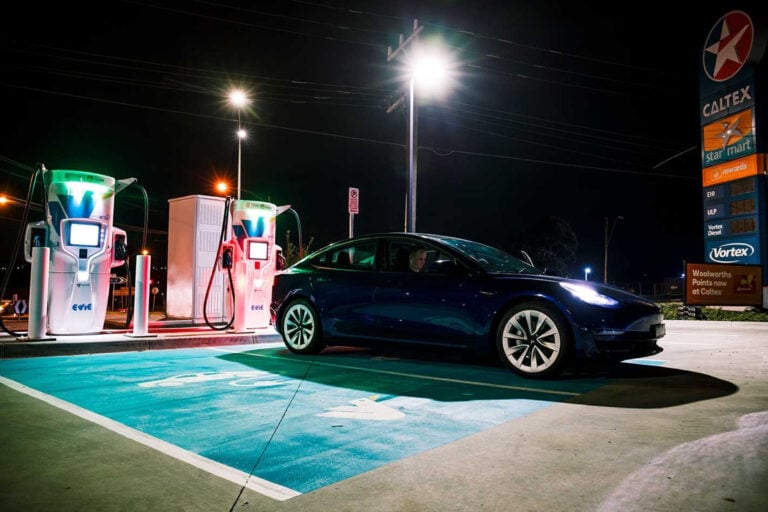 Advice
AdviceAre there enough EV chargers in Australia? Here's your guide
Public EV charging networks are expanding, but there still aren’t enough today. Does that mean you shouldn’t buy an EV?
-
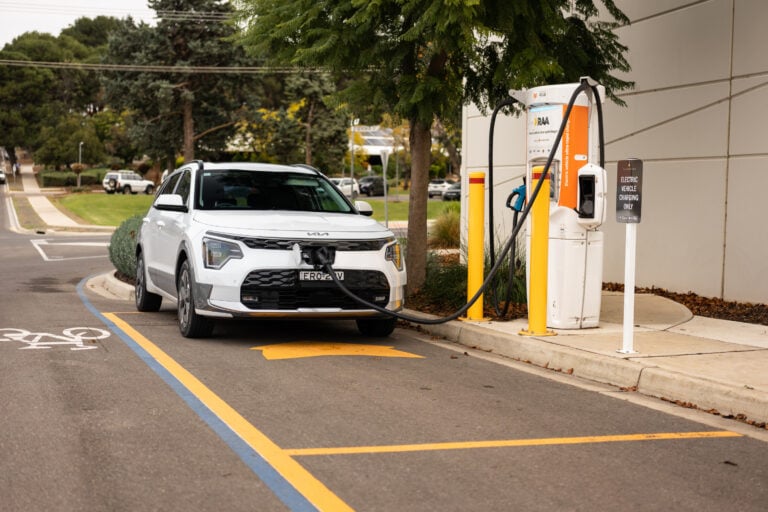 Advice
AdviceWhy are EV chargers unreliable?
Faulty public EV charging stations have been the angst for many critics in the media. Here’s why and what’s being done
-
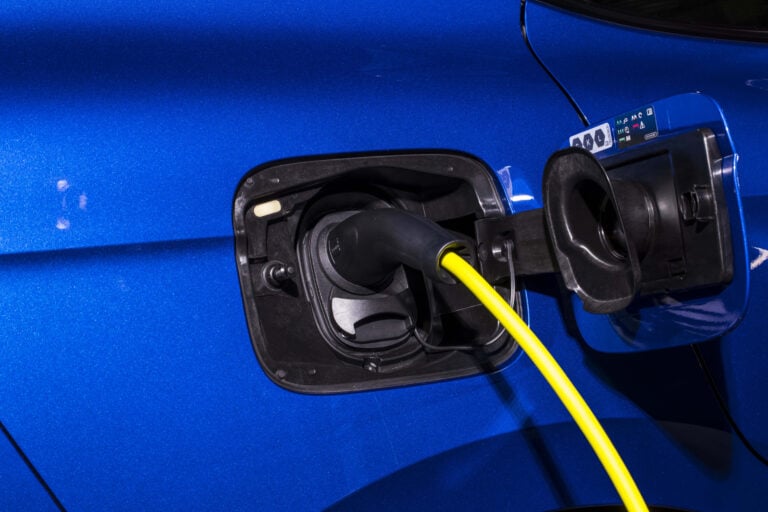 Advice
AdviceHow long does it take to charge an electric car?
It’s a common question that can be complex to answer. We break down the charging times and limitations


